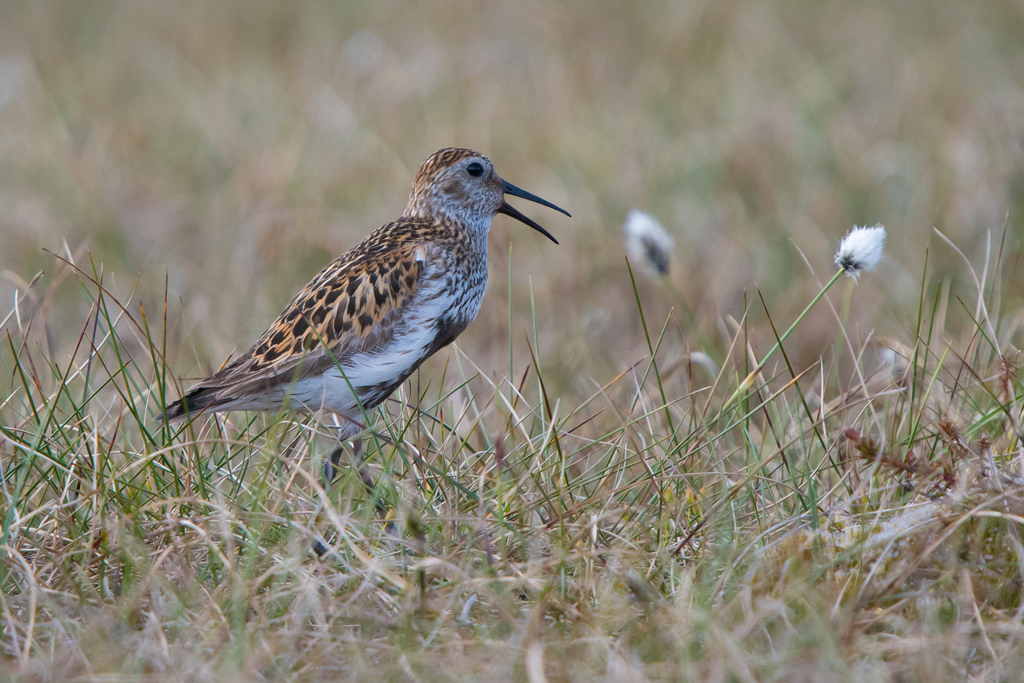
Tim writes: Dunlin do sing and I managed to catch one in the act on the high blanket bog of the Peak District. They sing with a rhythmic pulsating buzzing whistle, that sounds more like a child’s toy ray gun than a bird. Take a listen to the audio on this page if you don’t believe me.
They sometimes sing in flight, and sometimes from the ground, as here. Most birdwatchers are familiar with Dunlin as a common wading bird at the coast, but far fewer have seen it on its breeding grounds. It is one of the special treasures of the high blanket bogs of the Peak District where just a few dozen pairs breed. This compares with hundreds of pairs of Golden Plover and Curlew over the same area. They are often shy and elusive, and frustratingly are most active at dusk and dawn, often vanishing during the day. Unlike the plain brown winter plumage, the breeding plumage is spangled with rufous and they have a smart black belly patch, as if someone had pressed them onto an ink pad.
Most of the coastal wintering birds migrate to Britain from the extensive bogs of Iceland and northern Scandinavia. The British breeders are of the race schinzii, which also breeds in Iceland and eastern Greenland. A different race (alpina) breeds across Scandinavia, which look similar to schinzii, but are a tad larger with longer bills.
[registration_form]
For those of us old enough to remember fax, the trilling and burbling call of the dunlin always reminds me of those occasions when I accidentally phoned someone’s fax machine!!
Wonderful to see in it’s breeding habitat. How is the Peak District population doing Tim?
Thanks Dave. On the RSPB reserve at Dovestone the population has gone through the roof thanks to a rewetting programme on the blanket bogs. There were just a handful of pairs 10 years ago but now there are dozens. But on the burnt and damaged driven grouse moors the population is precariously low.
Magic, moorland magic & excellent that they are doing well under RSPB regime.
Sadly though that’s not something we hear from those shooting estates purporting to be wader conservationists, that is to say those claiming that management for shooting delivers increased wader populations.